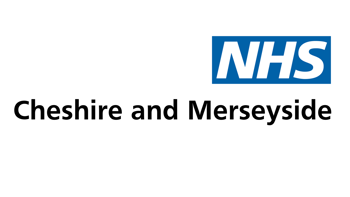NHS Cheshire and Merseyside update on system pressures
Tuesday, 21 March 2023

With NHS services reporting ongoing pressure, NHS Cheshire and Merseyside continues to urge members of the public to ensure their vaccinations are up-to-date and to continue to follow simple self-care advice.
If you need to access a healthcare service, but it’s not an emergency, NHS 111 Online can tell you:
- Where to get help for your symptoms
- How to find general health information and advice
- Where to get an emergency supply of your prescribed medicine
- How to get a repeat prescription
The Cheshire and Merseyside system continues to operate one level below the highest level of escalation, however rising pressure has been noted at a number of local NHS Trusts, including North West Ambulance Service.
Infection prevention and control measures continue to impact on patient flow due to the number of hospital beds currently occupied by patients with COVID-19 or norovirus.
Across Cheshire and Merseyside as a whole there are currently 160 beds closed due to infection prevention and control measures.
All NHS Trusts are also reporting an increase in the number of ‘long stay’ patients (21+ days) - a total of 1,379 patients across Cheshire and Merseyside.
Discharge remains a challenge, with around one in six beds currently occupied by patients who are classed as medically fit for discharge.
Cheshire and Merseyside has now utilised 80% of additional funding from a national £200m discharge fund and there remains virtual ward capacity across the system for patients on frailty, heart failure and acute respiratory illness pathways.
Our priority, as always, is to ensure safe and high-quality care for people in Cheshire and Merseyside.
Hospitals and community services, including staff across nursing, pharmacy and general practice are doing all they can to meet people’s needs. As always, the NHS will contact you if an appointment needs to be rescheduled.
As a system, a number of measures are in place to help relieve the current pressures, including:
- Work with NHS Trusts to ensure all possible capacity across the healthcare system is utilised and to support the release of ambulance crews.
- National funding is being utilised across Cheshire and Merseyside to support hospital discharge processes and ensure more care packages are available in the community.
- Significant investment continues to be made in virtual wards to support more people to be treated out of hospital.
Irrespective of how busy local NHS services are, and any NHS industrial action, it is essential that people who need urgent medical care continue to come forward – especially in emergency and life-threatening cases, when someone is seriously ill or injured or their life is at risk.
Typical emergencies include cardiac arrest, loss of consciousness, fits that aren’t stopping, breathing difficulties, severe bleeding, severe allergic reactions and serious head injuries. If you have already called 999 to request an ambulance, please only call back if your condition has worsened or to cancel the ambulance. Repeatedly calling 999 can block phone lines for other emergencies.
More information about when to call 999 and when to go to A&E is available via the national NHS website.